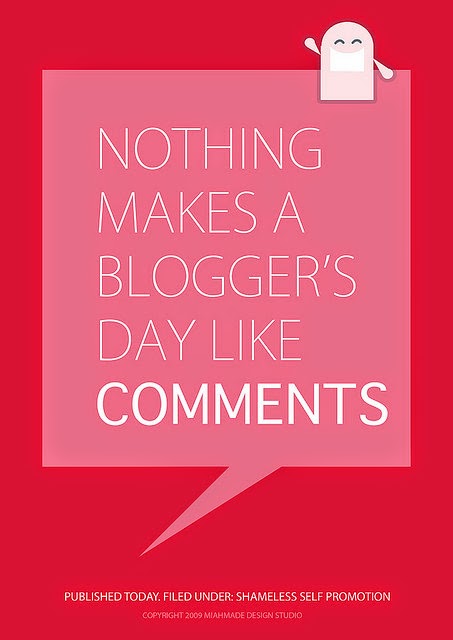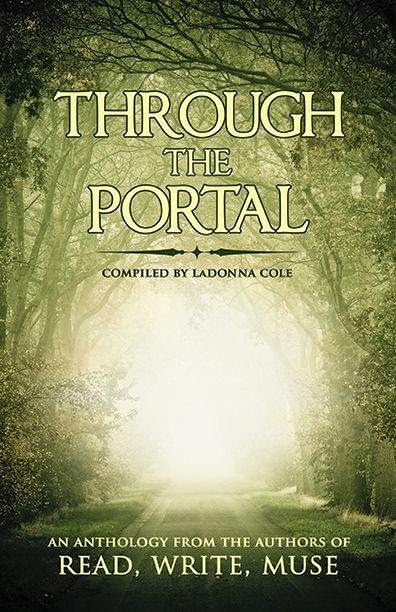I’m bursting with excitement up here in British Columbia, and finally I get to share my news with you!
The writers and bloggers at Read Write Muse are publishing our first anthology: Through the Portal. It will be released on October 7, 2014 in trade paperback and eBook. Today was the big cover reveal, and we’re so proud of it!
The theme of our anthology is portals. Many of us have faced the portal of mortality in our family and friends' lives over the past year. We have chosen to donate part of our proceeds to a cancer related charity to honor those in our lives facing that doorway, some who have lost their battle and some who have won.
The creative minds of our Musers found many directions to explore with this motif. My own short story turned out longer than expected, and ended up as a novella: "Shadow Land Motel."
It began with a very vivid dream I had a couple years ago; so vivid that I wrote the scene down the next day. That dream turned into "Shadow Land Motel," where a mother and her young son learn that some tourist traps are literal.
The portal experts at Read Write Muse invite you to escape into imagination through this portal story collection.
Jump through time to new worlds, indulge in pizza, chocolate, and romance. Fight evil villains, transport with innocent souls, and glimpse into that final portal awaiting us all.
Authors, bloggers, songwriters, and poets collaborate to bring you stories sprinkled with ethereal prose, whimsical humor, and heart pounding thrills. Through the Portal beckons you to unlock the adventure.
Including the works of Annie Adams, Andrea Asay, J.S. Bailey, LaDonna Cole, Katie Cross, Laura Custodio, Rob Holliday, S. R. Karfelt, Kelsey Keating, D. M. Kilgore, Emily Ogle, Natalie J. Pierson, and Kimberly Robertson.
Read Write Muse will donate $1 per book sale to a cancer related charity for one year.
Saturday, September 27, 2014
Tuesday, September 16, 2014
4 Easy Ways to Increase Your Blog Comments
So you write your blog post, marvel at how perfectly crafted
it is (or maybe wonder if it is good enough to publish), put it online, and
wait for a comment that will show you that someone out there in the wide world
reads your work and appreciates you.
{crickets}
Anybody out there?
 |
| visualpanic via Compfight cc |
Has this happened to
you? It definitely has happened to me. So how important are comments, anyway?
If you don’t get them, does it mean no one reads your page? Or nobody loves
you?
Let me put some of
those fears to rest. Comments aren’t nearly as critical as you think. While
they’re great for a writer’s ego (as long as they’re positive), they aren’t
necessarily a good indicator of whether or not readers are engaged with your page. That’s why
we use analytics. They are, however, a great way to start a conversation.
Comments function as
a way to communicate with your readers. If you love to engage with
argumentative readers, you can push them to comment by posting more
controversial content. It can be a great way to start a discussion. Be sure to stay true to your voice and the tone of your blog. You are building a community of like-minded people, and those are the ones who will come back again and again.
There are two trains
of thought on comments right now. The
new trend among some larger blogs is to turn off comments altogether. Much of the
time comments on posts become a forum for self-promotion. (“Hey, I loved your
post, and I’m a professional, too! Try my new app blah blah blah! And visit my
website!”)
The massive site
Copyblogger has removed its comment box completely,
citing a 96% spam rate in its comments as one of the reasons. Seth Godin’s blog has never allowed comments (making some
people to question whether it should even be called a blog.) And Jay Baer’s
website, Convince and Convert, plans to stop allowing comments in the near
future.
There are still many
more defenders of comments out there. After Copyblogger’s announcement, many
bloggers wrote about why they are still valuable.
 |
| photo by miss miah via flickr |
The comments on your blog are
the opportunity to create a community. It’s a chance to show your readers that
their opinions are important, and that they can contribute.
Remember that just
because people aren’t commenting, it doesn’t mean that they don’tlove what
they are reading.
There are a few things commonly done on blogs that might be hindering your readers from making a comment.
If you want to increase your comments, make sure you have
your blog optimized and set up specifically to make commenting both simple and rewarding.
Here are some tips
to help:
1. Make it easy to leave comments
Don’t make your
reader jump through hoops just to leave a comment on your site. If captcha is
turned on, turn it off. Don’t make them register just to comment. A convenient
option is a login with Facebook Connect or Twitter Connect (both for Wordpress.)
2. Ask a leading question
At the end of your
post, ask a good question of your readers. They often have great ideas. One
obstacle to comments is to sound too authoritative in your post. If you have
all the answers, why should anyone give you a suggestion?
3. Respond to comments
As a blogger it’s
very important to respond to every comment you receive. People are less
inclined than ever to comment on a blog, so reward their efforts accordingly. When
you respond, you have the opportunity to turn the comment into an engaging discussion. Try to respond as promptly as possible, and when you can, ask a question that will draw them into a continuing conversation.
4. Comment on other blogs
Connecting with
other bloggers and blogging communities is a great way to increase your own
community. When you comment on other bloggers posts, they will often return the
courtesy. You might even find yourself in the position of guest posting on other sites, which will increase your authority and your exposure. That will bring more readers to your site, who will hopefully feel compelled to comment.
I agree with those
who think comments are still useful and important to blogging.
Please let me know
in the comments below if you have any suggestions for increasing readers
comments, or if you think comments are no longer relevant. I really want to know.
Saturday, September 6, 2014
How to Spice Up Your Author Platform
Do you cringe when you hear the phrase “author platform”? It sounds intimidating, doesn’t it? Like you might have to climb up on some vast stage, proclaiming your writerly prowess to the world. Don’t worry. It’s not scary, and it doesn’t have to be overwhelming.
What is an author platform? It is just a way to talk about a writer’s engagement with their fans, their presence on social media and online, their connectedness to other writers, critics, etc. Agents and editors are looking to see if an author has visibility and authority, and can reach their target audience. Whether you are a beginning author or are already published, it’s necessary to have a platform.
 |
| photo via flickr |
Think of it this way. It’s about connection, so instead of a platform it’s more like pathways. If you’re sitting alone in your little cottage in the woods writing your lovely heart out, it doesn’t matter how fabulous the words are flowing from your pen.
You have to put on your red cape (apparently you are Little Red Riding Hood), gather up your basket, and go visiting your neighbors down the paths in the woods. When you’ve established an excellent reputation and spread goodwill, then everyone will be eager to hear about your writing projects. And they will protect you from the Big Bad Wolf.
 |
| photo via flickr |
A bit silly, I know, but not that far off from the truth. Your platform is an extension of you. Building trust and goodwill is as important as showing the beauty and uniqueness that comes only from you.
Your author website is another extension of you. Visitors to a website decide in three seconds whether to stay on the page or leave. You have very little time to make an impression. Creating a good website shows that you take yourself and your writing seriously.
Take time on your website design so that it is a reflection of you. Any agent or publisher you query will immediately look at your website. It must look professional, but not sterile and cold. Personalize the template you use. On the other hand, don’t go overboard with too many colors and fonts, and distracting details. One idea is to go with a theme related to the type of books you write. If you write YA fiction, you might go with colors similar to the ones in the picture of a teen’s bedroom below.
 |
| photo via http://houseanddecoration.com/ |
The landing page of your website is kind of like a first date. You definitely want to give the important information up front, like your name and tagline. You want to dress up a bit, but not too much (you don’t want to look like a floozy, do you?) And you want to give enough details, maybe even some teasers, so that the reader wants to come back for more. You want to draw them in so they will click on your other pages, and look through your archives (like a gentleman, of course!)
You won’t get a second date, or a second visit, if you fill your landing page with anything too negative. (No one wants to date a complainer.) Avoid long blog-type posts on your first page. It’s better to have a separate page tab for your blog. Remember to give out your phone number, or in this case ask them to sign up for your email list!
 |
| photo via flickr |
Take these suggestions and be inspired! I would love to hear how you have implemented my ideas, or if you have your own ideas and recommendations. Let me know in the comments.
This post was originally published on www.ReadWriteMuse.com, where I write twice a month on author platform and social media. Come by and read some of the amazing insights by our 13 contributors on all aspects of writing and the writing life.
Subscribe to:
Posts (Atom)
